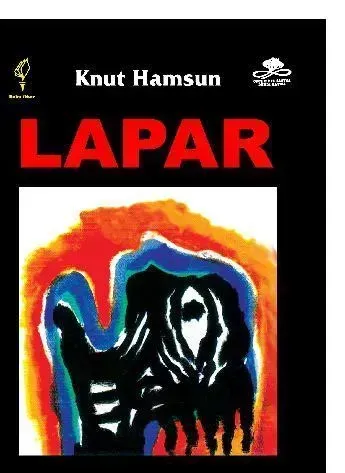Lapar

Author: Knut Hamsun , Marianne Katoppo (Translator)
Category: Fiction, literature, classics
Language: Indonesia version
Publication Year: 2013
Pages: 284
Description:
Lapar ("Hunger") is one of the greatest works by Knut Hamsun, the Nobel Prize in Literature winner of 1920, and a renowned Norwegian novelist. His works have sold over two million copies.
The protagonist, "I", is a writer in "Hunger" who portrays how a person is determined to uphold the values they believe in, despite the harshness of life. His strong spirit to continue writing reminds us of Chairil Anwar's "I", who kicks, charges with wounds, can run, and wants to live for a thousand years.
"Hunger" by Knut Hamsun is one of those rare novels that grab you by the collar and drag you into the depths of human experience with an intensity that’s hard to shake off. It’s a raw, almost visceral exploration of the human condition, painted in stark, unflinching strokes. You won't find the usual literary tropes here—no comforting resolutions, no tidy moral conclusions. Instead, Hamsun offers a portrait of a man teetering on the brink of madness, driven by the most basic of human needs: the need to eat.
The novel follows an unnamed protagonist through the streets of Christiania (now Oslo), where he wanders, starving and destitute, in a perpetual state of existential crisis. What’s striking about "Hunger" is how Hamsun doesn’t just depict physical starvation but also dives deep into the psychological and emotional starvation of his character. This isn’t just a story about a man who can’t afford food; it’s about a man who can’t find his place in the world, who grapples with his identity and worth as he struggles to survive.
Hamsun’s writing style is deliberately sparse, almost as if he’s withholding something from the reader—just as life withholds sustenance from his protagonist. The prose is sharp, with a clarity that borders on brutal. Every sentence feels like it has been whittled down to its bare essence, much like the protagonist himself, who becomes increasingly gaunt and haggard as the story progresses.
But what really sets "Hunger" apart is the way Hamsun captures the protagonist’s inner turmoil. The character’s thoughts are fragmented, erratic, and often contradictory, reflecting his deteriorating mental state. One moment, he’s filled with grandiose plans and wild optimism; the next, he’s crushed by despair. This oscillation mirrors the unpredictable, often absurd nature of life itself, and it’s impossible not to feel a sense of empathy—even when the protagonist’s actions are irrational or self-destructive.
The novel also offers a searing critique of society and its indifference to those who fall through the cracks. The protagonist is not just physically hungry; he’s starved for recognition, for a sense of purpose, for something to cling to in a world that seems intent on erasing him. Hamsun doesn’t shy away from depicting the humiliations and degradations the protagonist endures in his quest to survive. There’s a particularly poignant scene where the protagonist, desperate for food, contemplates stealing a loaf of bread but is unable to bring himself to do it. It’s a moment that encapsulates the moral and ethical dilemmas that arise when survival is at stake.
Yet, despite its bleak subject matter, "Hunger" is not without its moments of dark humor. Hamsun has a keen eye for the absurdities of life, and there are scenes that are almost Kafkaesque in their portrayal of the protagonist’s struggles. The novel’s humor is never forced or out of place; instead, it serves to highlight the absurdity of the human condition, the way we cling to dignity even as the world strips it away from us.
Reading "Hunger" is not an easy experience. It’s a novel that demands your full attention, that asks you to step into the shoes of someone who is desperately trying to hold on to his humanity in the face of overwhelming odds. But it’s also a deeply rewarding experience. Hamsun’s ability to capture the nuances of human emotion, his unflinching portrayal of suffering, and his exploration of what it means to be truly alone in the world make "Hunger" a masterpiece of modern literature.
In the end, "Hunger" is more than just a novel about a man who is hungry. It’s a meditation on the human condition, on the lengths we go to in our search for meaning, and on the ways in which society often fails those who need it most. It’s a book that will stay with you long after you’ve turned the last page, haunting you with its stark portrayal of a man’s descent into the abyss. If you’re looking for a book that challenges you, that makes you think and feel in equal measure, "Hunger" is not to be missed.Reading Knut Hamsun's "Hunger" leaves a lasting impression of his extraordinary zest for life, and readers will understand why Hamsun won the Nobel Prize in Literature.
Personal Notes:
Another book that I will never tire of is this one, as the story resonates deeply with my own life experiences. The nearly unbearable hunger makes life richer in gratitude and color. The original title was "Sult, " first published on January 1, 1890.
Back to Home